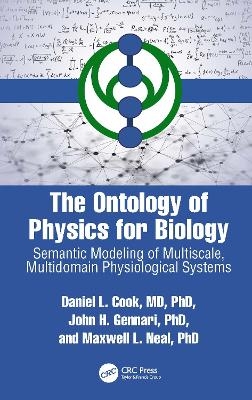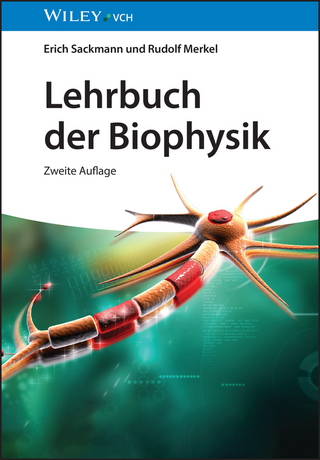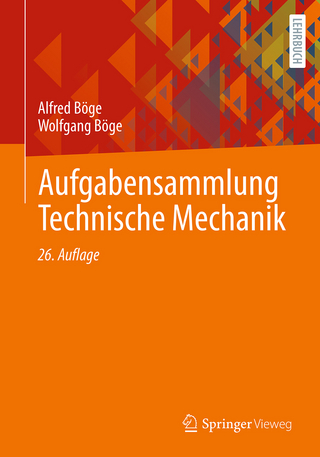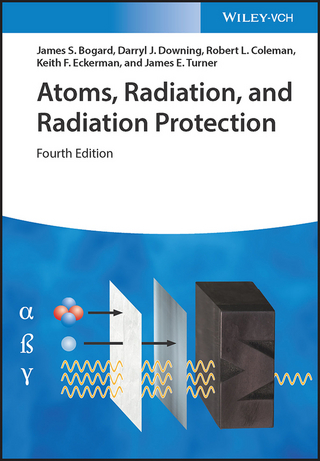
The Ontology of Physics for Biology
CRC Press (Verlag)
978-1-138-59805-8 (ISBN)
This book introduces semantic representations of multiscale, multidomain physiological systems that link to qualitative reasoning and to quantitative analysis of biophysical processes in health and disease. Two major public health problems, diabetes and hypertension, serve as use-cases to illustrate the depth and rigor of such representations for logical inference and quantitative analysis. Central to this approach is the Ontology of Physics for Biology (OPB) that formally represents the foundations of classical physics and engineering system dynamics that are the basis for our understanding of biomedical entities, processes, and functional relationships.
Furthermore, we introduce OPB-based software for annotating and abstracting available biosimulation models for reuse, recombination, and for archiving of physics-based biomedical knowledge. We have formalized and leveraged physics-based biological knowledge as a working view of physiology and biophysics from three distinct perspectives: (1) biologists and biomedical investigators, (2) biophysicists and bioengineers, and (3) biomedical ontologists and informaticists. We present a logical and intuitive semantics of classical physics as a tool for mediating and translating biophysical knowledge among biomedical domains.
Daniel L. Cook, MD, PhD
John H. Gennari, PhD
Maxwell L. Neal, PhD
Daniel L. Cook is an Emeritus Professor of Physiology and Biophysics at the University of Washington, Seattle. He graduated (BSME, 1967) from the University of Michigan Mechanical Engineering and worked at the Boeing Airplane Company, first, to manufacture the first 747 airliner, and then to analyze the structural dynamic of the (unbuilt) Boeing supersonic transport (SST). Taking an interest in the emerging field of bioengineering, he earned a Masters Degree in Mechanical Engineering (UW, MSME, 1971) modeling the cellular dynamics of insulin secretion. He then entered the UW's Medical Scientist Training Program (MSTP, 1971) to earn MD and PhD degrees. He has published seminal laboratory and modeling studies of the electrophysiology of insulin secretion, and of auditory sound localization. He is retired and lives in Seattle with his wife. John H. Gennari is a Professor and Graduate Program Director for Biomedical & Health Informatics (BHI) at the University of Washington. His background is in computer science and artificial intelligence, and was introduced to the field of biomedical informatics in the early 1990s at Stanford University. There, he developed an interest in knowledge representation as applied to biomedical applications, and collaborated with early developers of ontologies. After joining the University of Washington in 2002, he began his collaboration with Max, Dan, and Cornelius Rosse around models of anatomy and physiology. In addition to teaching and leadership roles in BHI, John continues to be active in research, furthering efforts in standards development and reproducibility. John enjoys Seattle and the pacific northwest with his family. Maxwell L. Neal is a Senior Scientist at Seattle Children’s Research Institute. Since his first exposure to dynamic physiological modeling while working on DARPA’s VSP, Max’s work has focused on applying computational methods to understand various biological systems as well as the development of standards and tools that facilitate systems-level biological modeling. Meeting and collaborating with John and Dan during the VSP established his long-standing interest in semantics-based representations of biosimulation models, which he studied for his Ph.D. at the University of Washington. Since then, he has led the adoption of community-ratified metadata standards for biosimulation and models as well as the development of software for semantics-based biological modeling. He lives in the Seattle area with his wife and son.
1. Biomedical Challenges 2. Biomedical Information and Data Resources 3. Biomedical Ontologies 4. Biophysical Systems Analysis 5. System Dynamic Modeling 6. Ontology of Physics for Biology 7. OPB-based Semantic Modeling 8. OPB Review and Possibilities
| Erscheinungsdatum | 16.12.2023 |
|---|---|
| Zusatzinfo | 7 Tables, black and white; 58 Line drawings, black and white; 58 Illustrations, black and white |
| Verlagsort | London |
| Sprache | englisch |
| Maße | 156 x 234 mm |
| Gewicht | 603 g |
| Themenwelt | Naturwissenschaften ► Biologie |
| Naturwissenschaften ► Physik / Astronomie ► Angewandte Physik | |
| ISBN-10 | 1-138-59805-4 / 1138598054 |
| ISBN-13 | 978-1-138-59805-8 / 9781138598058 |
| Zustand | Neuware |
| Informationen gemäß Produktsicherheitsverordnung (GPSR) | |
| Haben Sie eine Frage zum Produkt? |
aus dem Bereich


